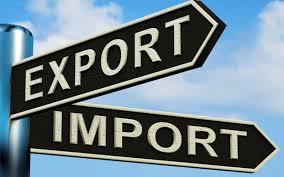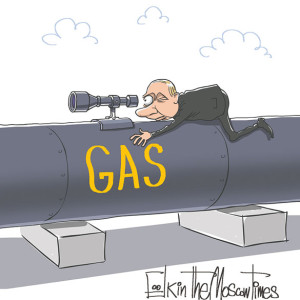
In 2013, Russia’s external turnover reached its highest level in modern history, amounting to the hefty $864.6 billion. Oil prices that from 2011 to 2014 constantly exceeded $100 per barrel had no small share in this. Thanks to this situation, such notions as budget deficit and state debt have become part of the history (albeit recent) of the 1990s that is being actively rewritten on Putin’s initiative.
Satisfied and content, Russian citizens – not everyone, but certainly the majority – came to believe that their financial stability was secure and demanded that the Kremlin come up with something more entertaining than the long-familiar reality TV shows, such as Dom 2 and Let Them Talk. Having tamed Siberian tigers and flown with Siberian white cranes, Putin responded to popular yearning for something better than TV fencing by treating his loyal people with the Sochi Olympics, and then the annexation of Crimea and the war in Donbass.
However, Russia’s foreign partners did not particularly like such reality shows and responded to them by introducing economic sanctions. Furthermore, the historic cycle of high oil prices came to an end, and in the summer of 2014 oil prices plummeted. That same year, Russia’s external trade decreased by around 7 percent, and in 2015, the country’s foreign trade dropped by 33 percent year-on-year from 2014. Statistical data for the first quarter of 2016 shows that this decrease will continue, since foreign trade is falling by more than 25 percent compared to last year. Consequently, in less than three years, the drop reached 65 percent.
The export and import patterns have not changed considerably, which means that export volumes are decreasing – and this includes oil and gas export volumes, the share of which amounts to 70 percent. The official statistical data published so far confirms this trend, which might change since Russian companies have begun ramping up oil production. However, considering the price factor, this will only slightly influence the export structure by increasing the share of hydrocarbons, but will not save the overall situation since it is too overwhelming a task for the country’s oil sector to ramp up oil production even by 20 percent in the coming year or two.
Unlike the export of hydrocarbons and other raw materials, the shrinkage of which has created a deficit in the Russian budget for the first time in last few years but has not yet become too noticeable on the consumer level, a drop in imports has affected each and every one since, among other things, it had an impact on the volumes of imported food, clothing, and footwear. One can of course hope that these segments will not be further affected, but for now Russians are forced to tighten their belts and reduce their consumption of imported goods that they can no longer afford due to the ruble’s landslide.
The EU, the US, Japan and Turkey remain Russia’s main trading partners, accounting for more than 50 percent of the country’s foreign trade turnover. Offended by Western sanctions, the Russian president calls for a “turn to the East.” However, world trade, known for its indifference towards politics, is not ready for such a turn, and even Russian Minister of Economic Development Ulyukayev, a notorious sucker for big statements, voiced his concern about a decline in trade between Russia and the EU and claimed that there was no question of any “turn.”
 What saves Russia is Western pragmatism, when governments think and act in the interests of their citizens and manufacturers. This is why sanctions have not yet been extended – the West is waiting for Russia to come to its senses and to at least stop supporting separatists in Ukraine’s southeastern regions, after which the West promises to begin lifting the sanctions. Moreover, Western leaders try not to equate the Russian population with KGB managers who usurped power in the country. It would be better, however, if the Russian population realized that in order to enjoy a happy and contented life it is necessary to respect one’s foreign consumer, instead of labeling him an enemy of Russia.
What saves Russia is Western pragmatism, when governments think and act in the interests of their citizens and manufacturers. This is why sanctions have not yet been extended – the West is waiting for Russia to come to its senses and to at least stop supporting separatists in Ukraine’s southeastern regions, after which the West promises to begin lifting the sanctions. Moreover, Western leaders try not to equate the Russian population with KGB managers who usurped power in the country. It would be better, however, if the Russian population realized that in order to enjoy a happy and contented life it is necessary to respect one’s foreign consumer, instead of labeling him an enemy of Russia.





